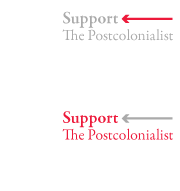The past decade has seen a wave of socio-political and economic changes across the globe. We are witnessing geopolitical conflict on a local as well as international scale, intensified by rising wealth disparities, mass migrations, crippling austerity measures, repression of dissent, and increasingly controlled borders. These events make evident the centrality of class to any discussion on the sweeping changes taking place in the global political landscape. Class, however, does not operate in isolation from other social structures, a fact that underscores the need for interdisciplinary research and intersectional discourse.
The year 2014 marks twenty-five years since Kimberlé Crenshaw coined the term “intersectionality” to describe how terms such as “class” or “race” may not be analyzed in isolation, but must be combined in order to understand the complexity of a particular praxis: “Because the intersectional experience is greater than the sum of racism and sexism, any analysis that does not take intersectionality into account cannot sufficiently address the particular manner in which Black women are subordinated.” While Crenshaw may have been speaking particularly of the lived experience of Black women and ‘mainstream’ feminism in the United States, the intersectional approach proposed by Crenshaw has been adopted by many disciplines and groups in order to analyze the junctures at which complex identities are contested and staged.
Twenty-five years on, we believe it is important to pay tribute to the ways in which intersectionality has become part of a range of disciplines, as well as to ask how it can be examined, critiqued, and pushed further. Therefore, in its Fall 2014 request for papers, “Intersectionality, Class and (De)Colonial Praxis,” The Postcolonialist would like to invite papers across disciplines, topics, and areas of study that delve into the state of intersectionality today, and the new ways and means in which it is being deployed and interrogated as an analytical tool and a theoretical framework.
For Peer Review: We welcome innovative pieces in English, Spanish, Portuguese, and French between 5,000-7,500 words in length for the standard peer review process. Submissions in Italian will be considered on an individual basis. Academic Dispatch pieces may be between 1,500 and 3,500 words (“conference-length” papers). Full length articles should have an abstract and key words, and be anonymized for peer review. While we have no standard citation format, we ask that each paper adhere to the accepted citation model in the relevant field.
Editorial or Artistic pieces relating to the Fall 2014 theme are also welcome.
Inquiries and Submissions may be sent to: Editorinchief@postcolonialist.com by September 19, 2014.
Works Cited
KIMBERLÉ CRENSHAW, “Demarginalizing the Intersection of Race and Sex: A Black Feminist Critique of Antidiscrimination Doctrine, Feminist Theory and Antiracist Politics.” University of Chicago Legal Forum (1989): 139-167.






